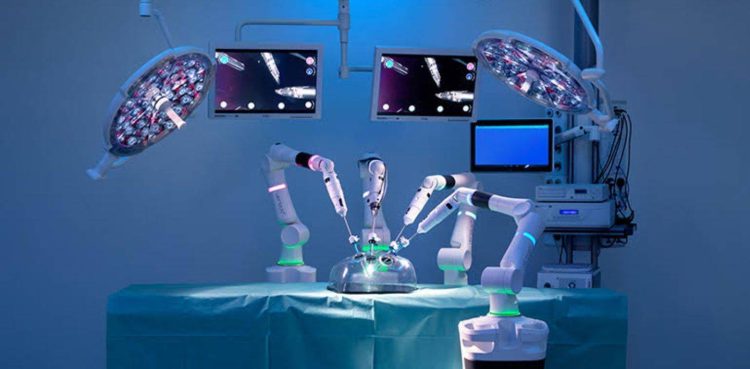The application of artificial intelligence (AI) technology in the field of medical diagnosis is triggering a revolution. The algorithms and learning capabilities of AI enable it to perform excellently in processing complex medical data, demonstrating enormous potential in improving diagnostic accuracy, reducing healthcare costs, and enhancing patient care. This article will explore the current application status, challenges, and future development trends of artificial intelligence in medical diagnosis.
The current application status of artificial intelligence in medical diagnosis
The application of artificial intelligence in medical diagnosis covers multiple fields, from imaging diagnosis to genome analysis. In terms of imaging diagnosis, AI can help doctors analyze X-rays, CT scans, and MRI images to identify early signs of disease. For example, AI algorithm has been able to help radiologists diagnose lung nodules, breast cancer, skin cancer and other diseases.
In the field of genomics, AI is helping researchers analyze vast amounts of genetic data and identify disease-related genetic variations. These pieces of information are crucial for understanding the pathogenesis of diseases, discovering new drug targets, and providing personalized treatment plans for patients.
In addition, AI is also applied in laboratory testing, pathological analysis, and clinical decision support systems. AI systems can help doctors make faster and more accurate diagnostic decisions by analyzing large amounts of clinical data.
Case study of artificial intelligence improving diagnostic accuracy
In the field of medical diagnosis, AI has already had some breakthrough application cases. For example, Google’s DeepMind has developed an AI system that can achieve the same accuracy as clinical doctors in the diagnosis of ophthalmic diseases. Another example is IBM’s Watson, which can analyze patients’ medical records and related medical literature to help doctors develop treatment plans.
Challenges Faced
Although AI has broad prospects in medical diagnosis, it also faces a series of challenges in practical applications. Firstly, data privacy and security issues must be strictly considered in AI applications. Medical data typically contains sensitive personal information and must ensure that patient privacy is not compromised when using AI technology.
Secondly, AI systems require a large amount of high-quality data for training to ensure the accuracy and reliability of diagnostic results. This requires a standardized and high-quality data collection and management system.
In addition, the acceptance of AI technology by doctors and patients is also a challenge. Practitioners in the healthcare industry need to have sufficient understanding and trust in AI technology, and patients also need to trust the diagnostic results of AI.
Future Development Trends
In the future, with the continuous advancement of AI technology and the increasing amount of medical data, the application of AI in medical diagnosis will be more extensive and in-depth. We can foresee that AI will make breakthroughs in the following areas:
1. Multimodal data fusion: AI will be able to integrate data from multiple sources such as genomics, imaging, electronic medical records, and laboratory testing to provide more comprehensive diagnostic information.
2. Explanatory Enhancement: The interpretability of AI is a key issue in medical applications. Future AI systems will provide clearer decision-making paths and logic to enhance trust between doctors and patients.
3. Real time monitoring and prediction: Through wearable devices and remote monitoring technology, AI will be able to monitor patients’ health status in real time and predict potential health risks.
4. Personalized Medicine : AI will be able to provide personalized diagnosis and treatment recommendations based on the specific situation of patients, thereby achieving true precision medicine.
epilogue
The application of artificial intelligence in medical diagnosis is opening up new possibilities. It can not only improve the accuracy and efficiency of diagnosis, but also promote the development of personalized and precise medical services. With the continuous advancement of technology and the gradual adaptation of the medical industry, AI is expected to become an important driving force for medical diagnosis in the future. However, to fully unleash the potential of AI in medical diagnosis, we still need to address multiple challenges such as data, law, ethics, and technology.











































Discussion about this post